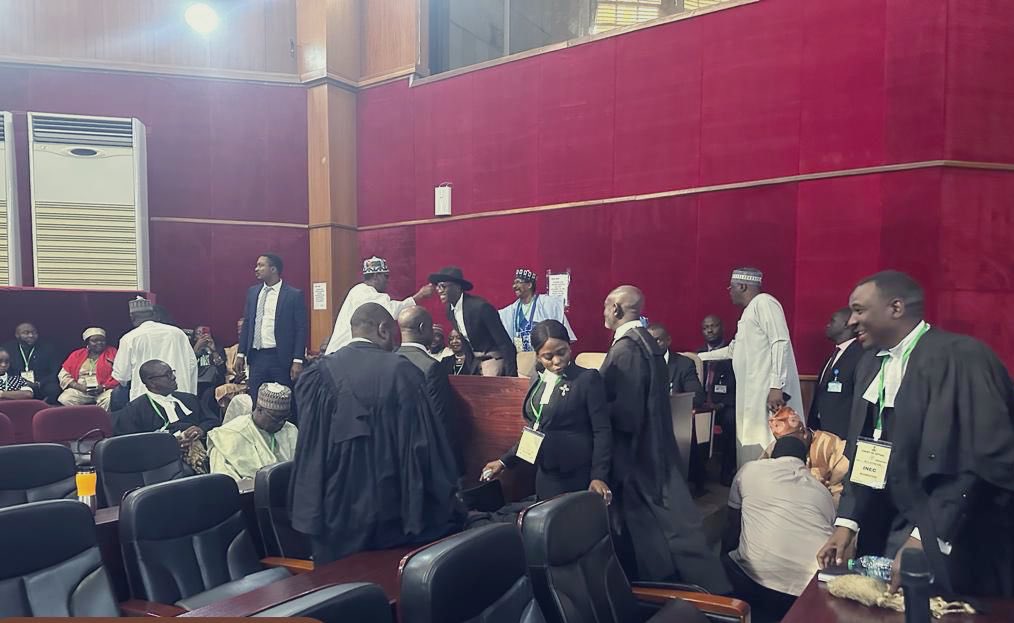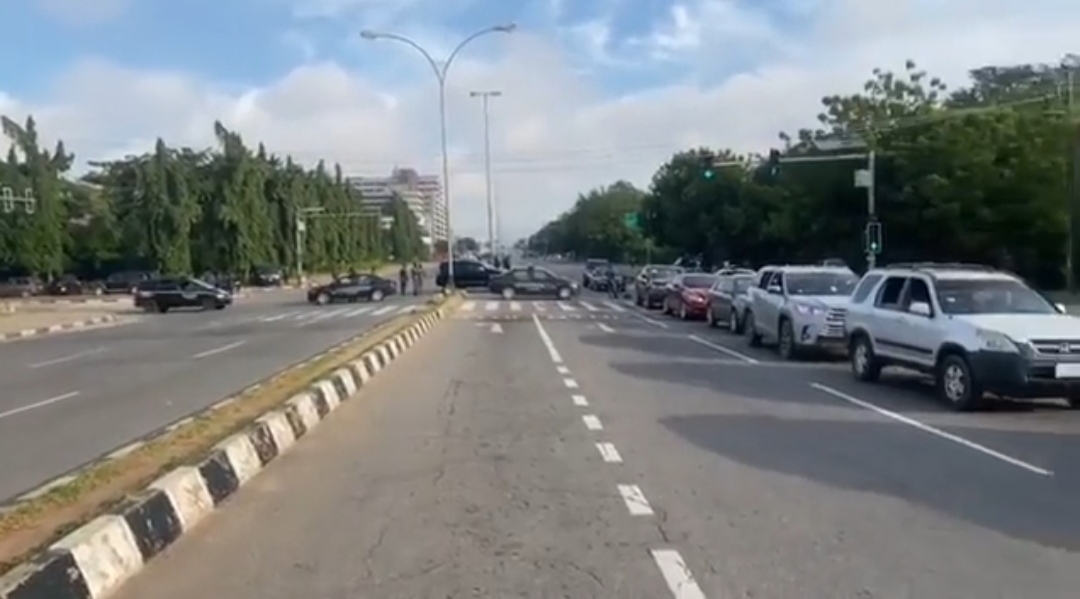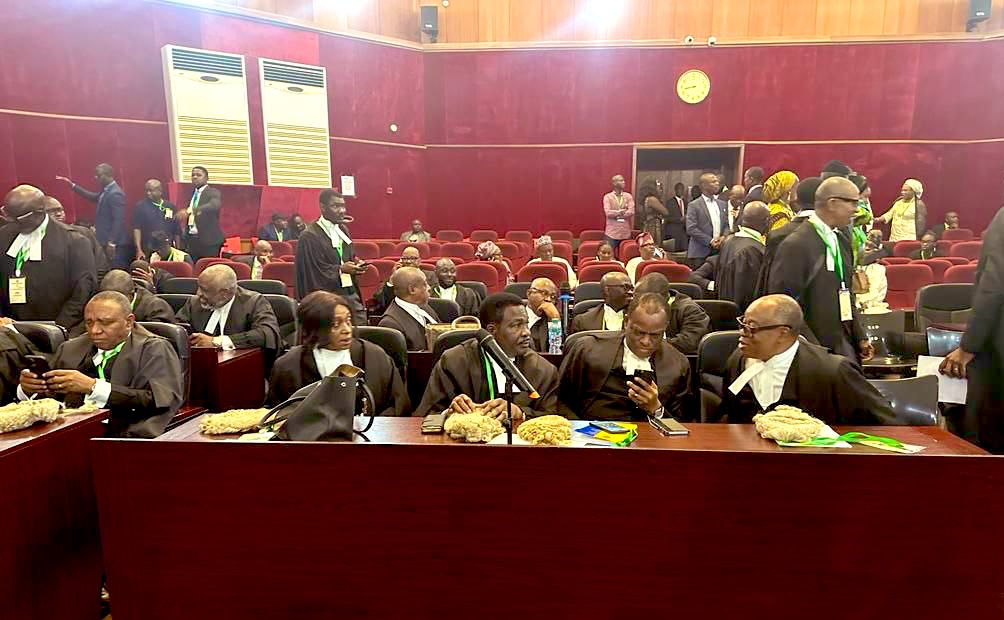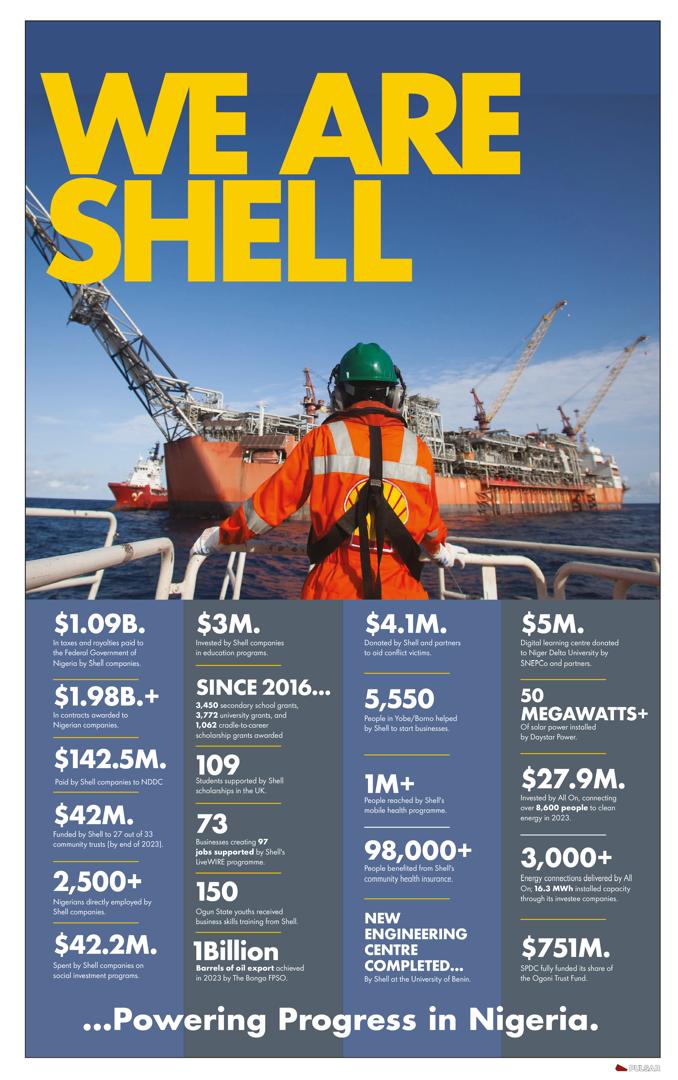EXCITING NEWS: TNG WhatsApp Channel is LIVE…
Subscribe for FREE to get LIVE NEWS UPDATE. Click here to subscribe!
Nigeria’s presidential election tribunal is poised to deliver a landmark judgment that could determine the fate of President Bola Tinubu’s presidency.
This judgment comes after five political parties and their respective candidates, who were contenders in the February presidential election, submitted petitions challenging the legitimacy of his victory.
The petitions have raised concerns about the integrity of the election and the authenticity of the results declared by the Independent National Electoral Commission (INEC).
The tribunal, located in the capital city of Abuja, began hearing these petitions since on May 8.
In the run-up to the election, President Tinubu made a surprising move by selecting Kashim Shettima, the former governor of Borno State, as his running mate.

This decision was considered unconventional, given that both Tinubu and Shettima are Muslims hailing from different regions, the southwest and northeast, respectively.
Thenewsguru.com (TNG) notes that while there have been numerous legal challenges to the outcomes of previous Nigerian presidential elections, none have succeeded.
Therefore, most political observers tend to expect the tribunal to uphold President Tinubu’s win.
Atiku Abubakar, representing the People’s Democratic Party (PDP), and Peter Obi, from the Labour Party, are the main petitioners who have asked the court to invalidate the election.
Their claims revolve around allegations of irregularities and accusations of INEC breaching the law by failing to utilize electronic voting machines to upload polling station results, among other criticisms.
The tribunal holds the power to cancel an election and order a fresh one if it deems this necessary, among other potential remedies.
However, should the tribunal uphold President Tinubu’s win, Atiku and Obi still have the option to make a final appeal at Nigeria’s Supreme Court, the highest judicial authority in the country.
However, this appeal process must be concluded within 60 days from the date of the tribunal’s judgment.
In the lead-up to the tribunal’s ruling, the military had established checkpoints on major roads leading into Abuja, conducting random searches of commuters and vehicles to ensure security.



Additionally, strict security measures have been put in place at the court premises. Two black vehicles are stationed to screen all individuals entering the courtroom, and security operatives are strategically positioned outside to maintain surveillance.
Legal representatives of the political parties have been pruned to accommodate all interested parties and political dignitaries expected to be present for the judgment.
Notably, several top government officials, including Abdullahi Ganduje, the National Chairman of the All Progressives Congress (APC), Yahaya Bello, Governor of Kogi State, and Hope Uzodimma, Governor of Imo State, have already arrived at the Court in anticipation of the verdict.
President Tinubu assumed office facing a multitude of daunting challenges, including anaemic economic growth, high unemployment, the highest inflation rate in two decades, record levels of debt, significant oil theft impacting government revenues, and widespread insecurity.
Addressing these pressing issues requires broad public support. However, President Tinubu secured 8.79 million votes, the fewest ever garnered by a Nigerian president since the nation’s return to democracy in 1999.
This limited level of electoral support places constraints on the goodwill he enjoys.
His closest rival, Atiku Abubakar of the People’s Democratic Party (PDP) secured 6,984,520 votes to claim second place, while Peter Obi of the Labour Party who resonated with younger voters, garnered 6.1 million votes.
Nigerian electoral law stipulates that a candidate can secure victory by amassing more votes than their rivals, provided they obtain 25 per cent of the vote in at least two-thirds of the 36 states and the federal capital, Abuja.
However, opposition parties have contented that President Tinubu who was declared the winner, did not attain the required 25 per cent of the vote in the Federal Capital Territory (FCT).
The 2023 presidential election judgment is being live-streamed, adding to the heightened anticipation among Nigerians eagerly awaiting the tribunal’s verdict.
This live-streamed coverage allows citizens from all parts of the country to closely follow the proceedings and outcomes of this crucial judgment.









